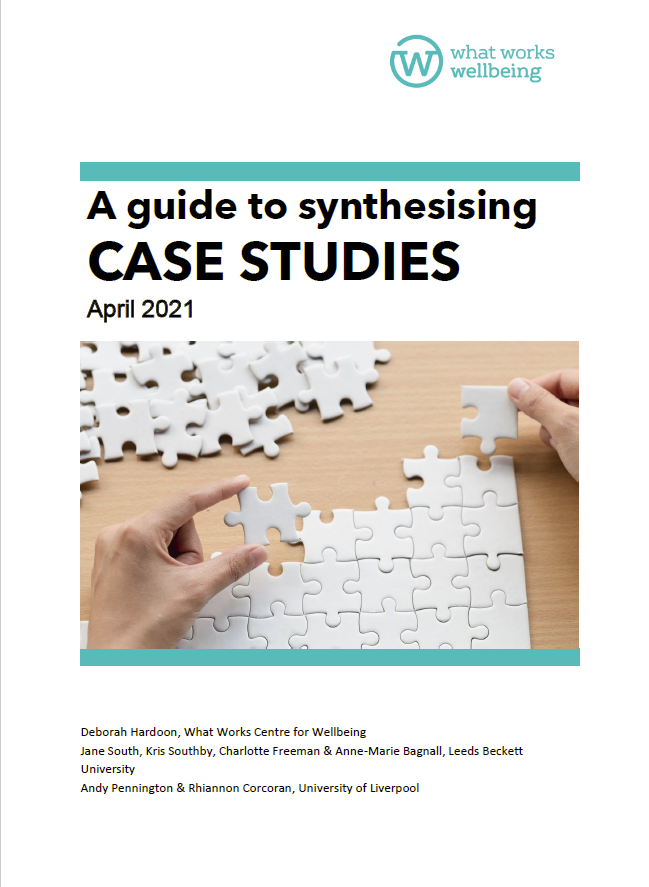Case study synthesis: Centre guide
Downloads

What do we mean by case studies?
Practice-based case studies are widely recognised as an important source of knowledge and learning. They can represent an alternative, and complementary, form of evidence to scientific or research-based evidence as they illuminate aspects of implementation and outcomes in real life settings.
The contextual information included in case studies can be particularly helpful for practitioners, policy makers and funders wishing to learn about how to apply and adapt different approaches in other contexts.
Practice-based case studies can provide insight into the questions of ‘how’ and ‘why’ projects or programmes work in highly complex settings and often incorporate community perspectives and the narrative form can make them easy to understand and share.
Practice-based case studies report on the evidence generated from the implementation of an intervention in a real-life practice setting. They typically provide a narrative explaining how the
intervention was developed in that context and what happened, including the learning from those involved in the development and delivery of that intervention.
They are most often written by practitioners involved in an intervention, but can also be developed in collaboration with funders, third sector organisations or researchers aiming to capture practice-based knowledge.
How can this guide help you?
This guidance provides a step by step approach to synthesising practice-based case study evidence. It is motivated by the opportunity presented by combining case studies, in order to make the most of the data case studies contain, whilst also producing robust, potentially transferable findings.
Findings from the synthesis of a number of individual cases may allow for translation to other settings and the generalisability of the findings from the synthesis of a number of practice-based case studies may also be increased by linking back to theory.
Related guidance
You may also find these resources useful for case study evidence.
- A guide to effective case studies.
- A real-world evidence review of community hubs and green space.
- Practice examples from Sefton and Hebden Bridge using our recommended case study template.
You can also read the Centre’s Method Guide to systematic reviews.
Downloads
![]()
[gravityform id=1 title=true description=true ajax=true tabindex=49]
